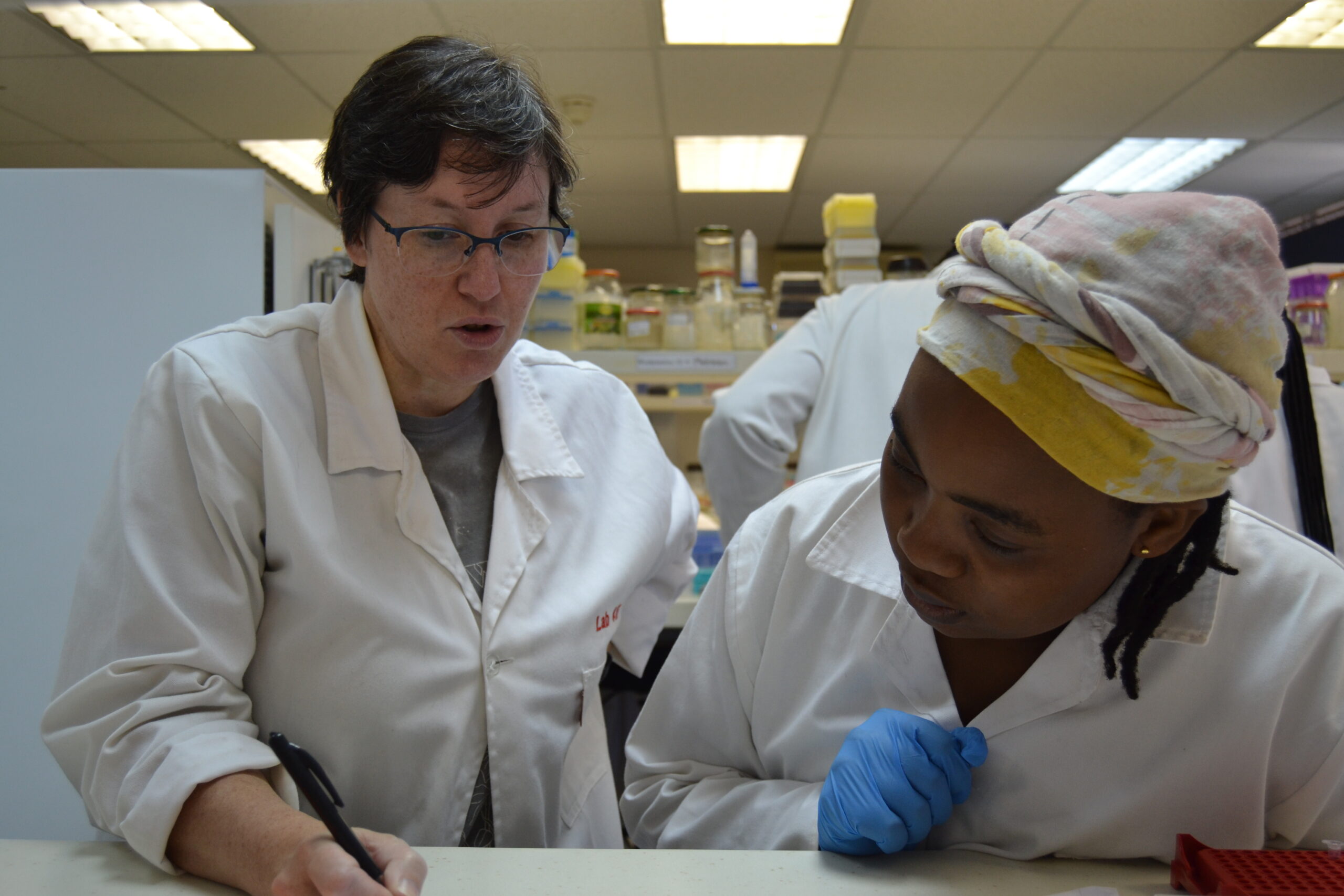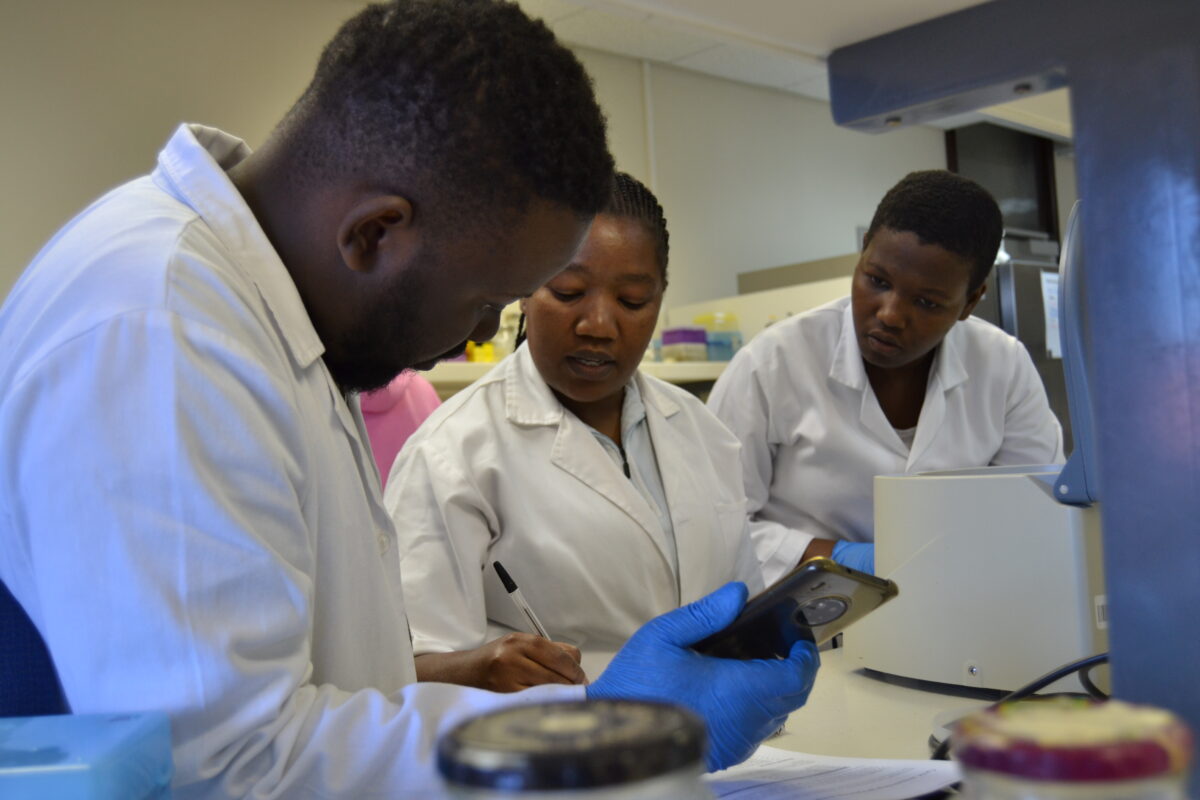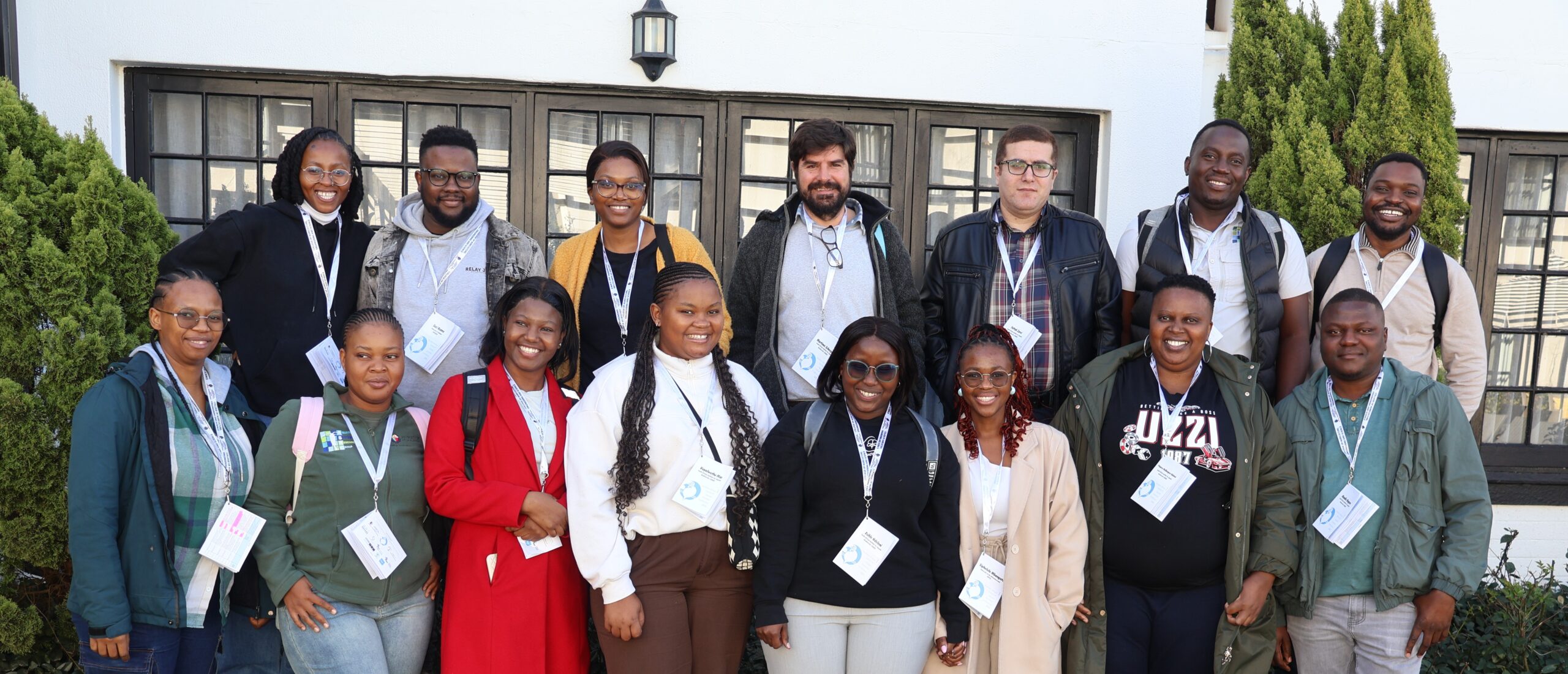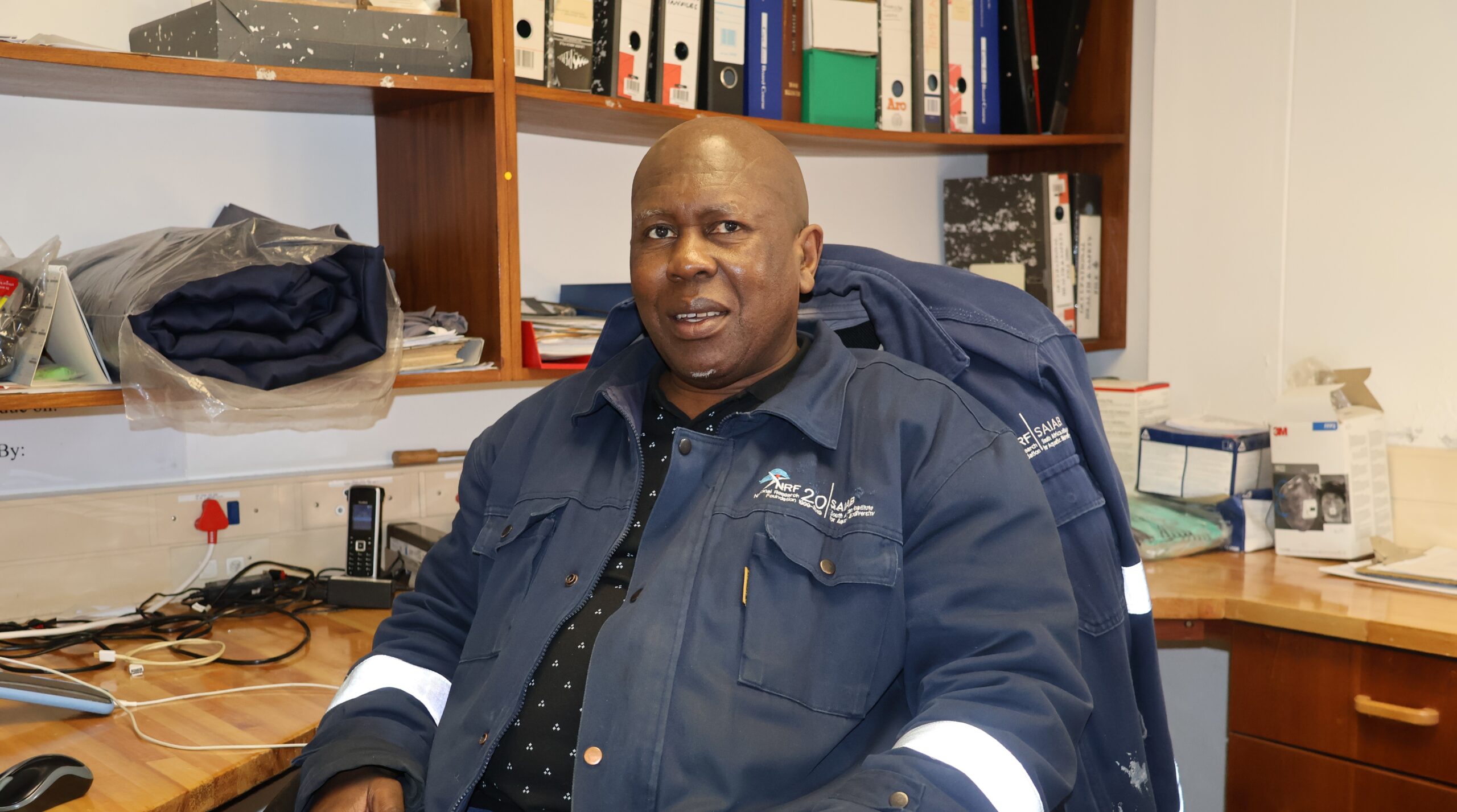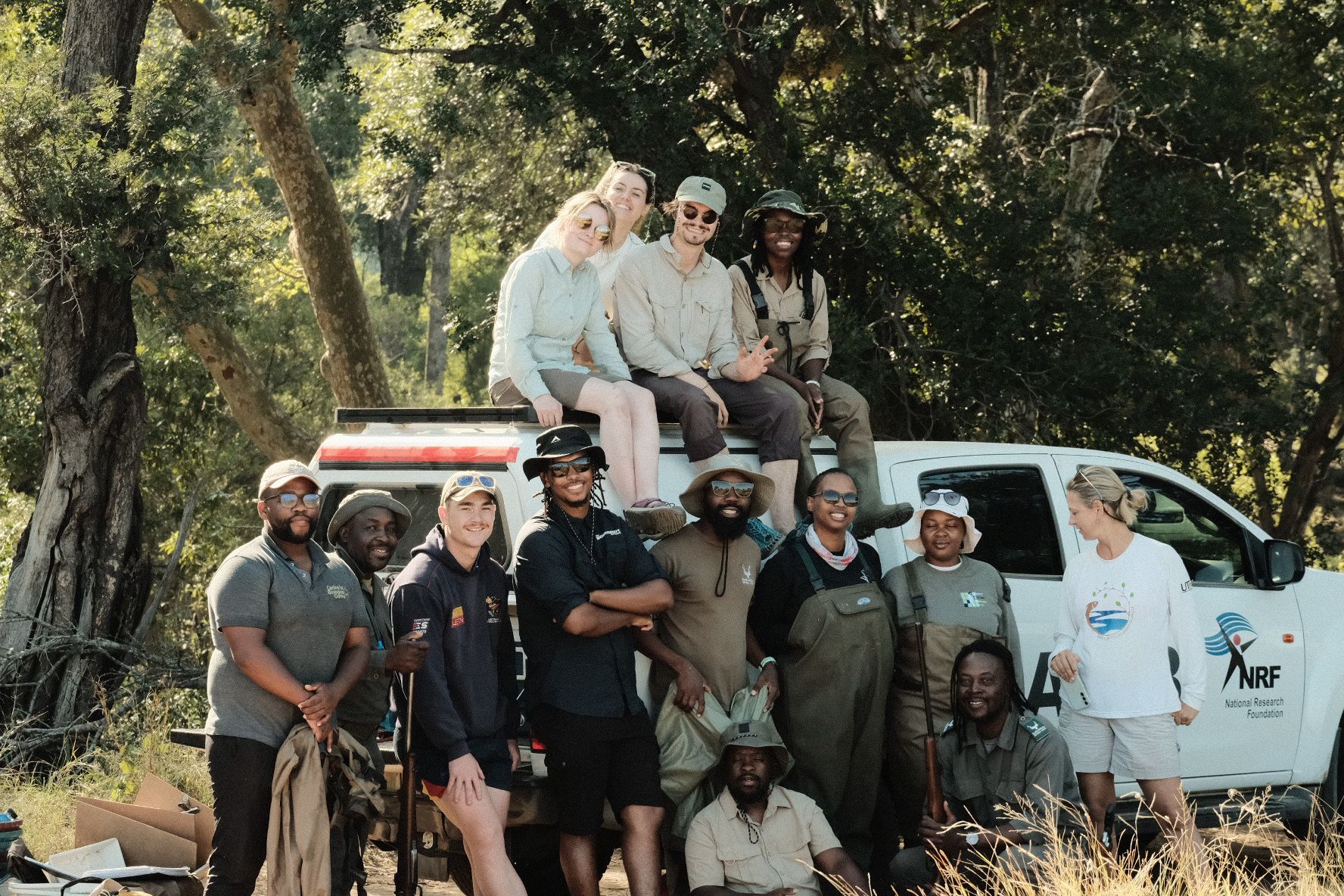
SAIAB’s Yonela Sithole (middle) assisting UniZulu PhD Students, Sazi Nzama (left) and Lungelo Nsibande).
By Andisile Klaas, (SAIAB Communications Intern)
The South African Institute for Aquatic Biodiversity (SAIAB), in collaboration with DIPLOMICS, hosted a training workshop aimed at upskilling researchers interested in entering into the field of molecular biology or those that wish to refresh previously obtained skills. The five day training workshop ran from 20 to 24 February at the Aquatic Genomics Research Platform laboratory, at SAIAB in Makhanda. The participating researchers were exposed to theoretical and practical learning in the field of molecular biology and the methods associated with it.
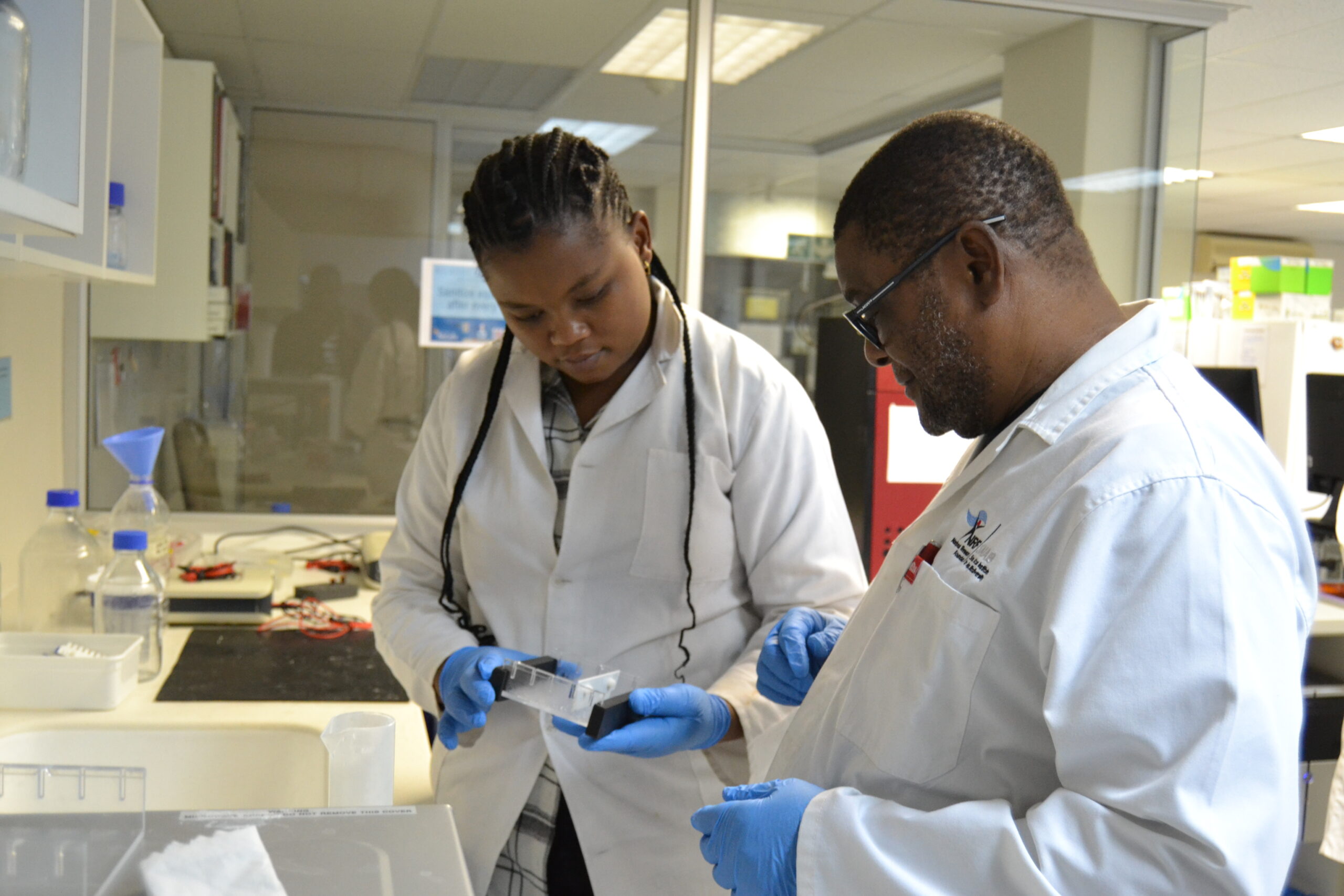
Molecular biology is a field of research that seeks to study and understand the composition, structure and interactions of cellular molecules. This includes the study of genomic material which is the code of life and the focus of the training held at SAIAB.
The workshop had an attendance of 10 diverse researchers from two institutions, the University of Zululand, and the University of Fort Hare, including some participants from SAIAB. The workshop was facilitated by SAIAB’s Instrument Scientist, Dr Gwyneth Matcher, who introduced or re-introduced the participants to theory and practical learning to this field with the focus on a different aspect daily.
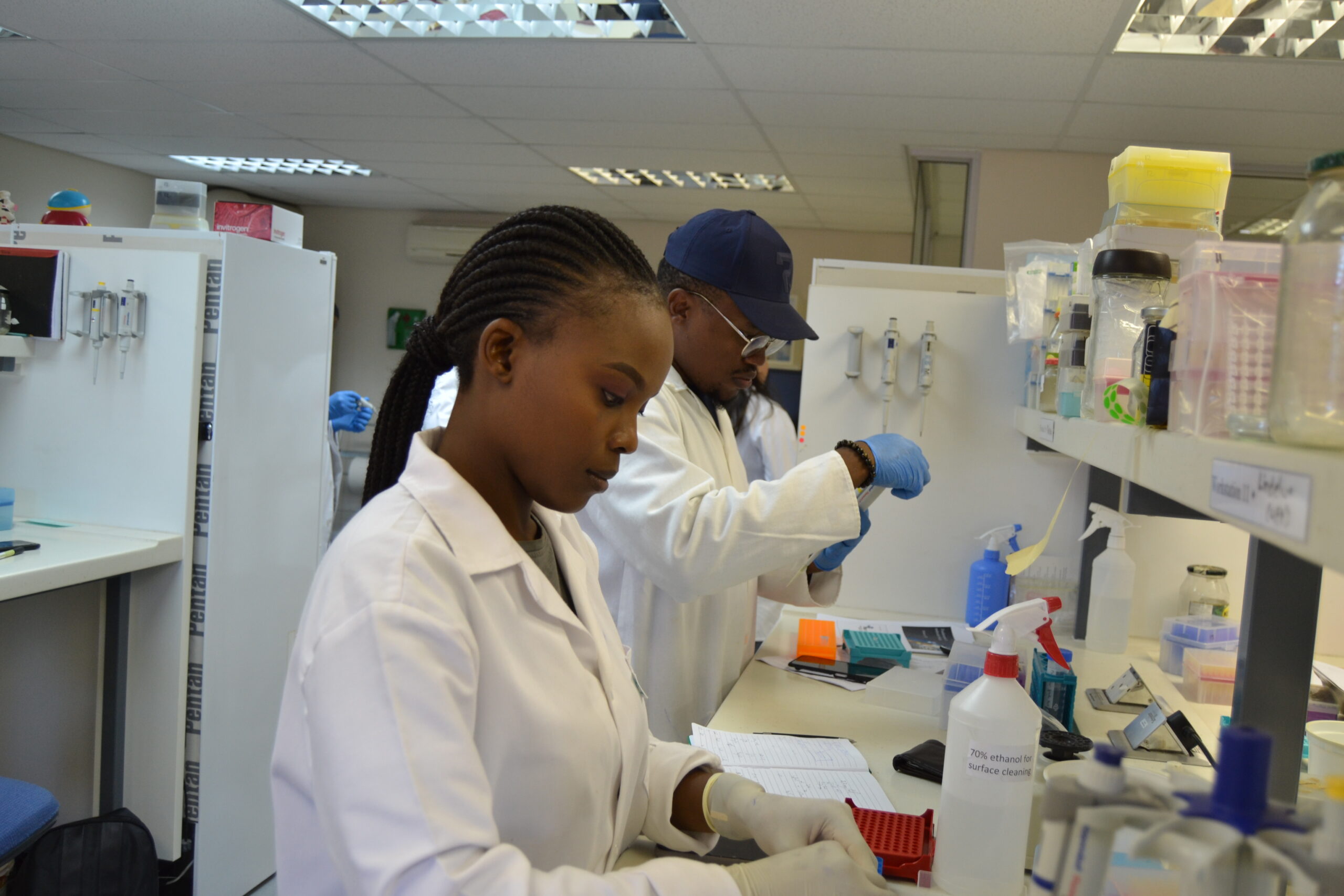
The daily sessions began with theoretical learning in the mornings to understand the fundamental concepts behind the techniques which were to be used in the laboratory for hands-on practical experience of the methodologies.
The different methodologies covered included extracting DNA, Polymerase Chain Reaction (a method to amplify or make multiple copies of a targeted gene), Agarose gel electrophoresis (the process of checking the right product by separating the fragments based on their molecular weight) and Sanger sequencing (reading the code of the gene copied).
All these methods are set to ensure that the researchers get the most accurate results and findings for Sanger sequencing and many of the techniques learnt can also be applied to multiple different genomic methodologies commonly used in the study of the genomes of living organisms.
